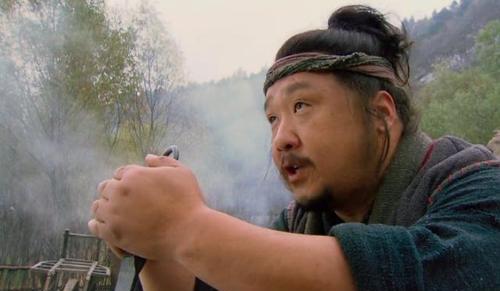Chinese characters have significant differences with foreign countries, each word has its own meaning behind it, the establishment of hieroglyphs has a variety of sources such as false loans, referring to things, huiyi, and Chinese surnames are more profound and have their own unique connotations. With the simplification of Chinese characters, many people cannot intuitively understand their true connotations, and one surname is also involved in simplified characters, resulting in it becoming an unlucky symbol today.

There is a custom in China that if people are celebrating the New Year with joy and joy, and a child suddenly says a word "die", many people will feel obscure. At the same time, there are also "corpses" that are doubly disliked, and the ancient corpses are actually very different from the meaning of today's.
The Book of Rites and Quilli records that "Sun can be the corpse of the king's father", which is the original meaning of the corpse, referring to the person who came out on behalf of the deceased to be sacrificed. In ancient China, there was a ritual called "erecting corpses", which was mainly prevalent before the Zhou Dynasty. Generally speaking, if after someone dies, when performing the worship ceremony, people need to choose a person from the relatives of the deceased to come out and worship the corpse, and such a person is similar to today's spiritual tablets. It is worth mentioning that in the process of sacrifice, the "standing corpse" represents the god, even if the emperor comes, there is no need to kneel.
There are also principles for the selection of corpses, in addition to the same surname, he can not be tortured, if it is a female deceased, it is required not to set up a female corpse, and the initial selection of people also need divination before the final decision can be made. However, the grandson can make a corpse for the grandfather, but the son cannot do it for the father, as for the reason, the ancients did not clearly explain.
However, Qin Shi Huang thought that he was unique in the world, and he saw that no one could stand on his own, so he abolished the Zhongzhi system, but among the ethnic minorities in China, the tradition of erecting corpses was still preserved, especially the Xianbei people, who later spread this system again during the Southern and Northern Dynasties.
However, the modern corpse character is actually written as "corpse" in ancient times, referring to the corpse, so there is a significant difference between the two, and the corpse surname is also involved.
The corpse surname was actually the surname of the nobility in ancient times. According to the Zuo Biography, during the Eastern Zhou Dynasty, some of the descendants of Zhao Gong lived in corpse towns, so they had this surname, and Zhao Gong was a royal family of the Zhou Dynasty, which was directly derived from the Ji surname. Although the number of people with this surname is not large, there are many celebrities related to this in history.
During the Western Han Dynasty, the bronze "Corpse Chending" was discovered, on which it was written that a Qi guo doctor named Corpse Chen. More famous is the Warring States thinker and politician Corpse, who is known as the "Corpse" and who wrote the book of the same name. This book mentions the concept of the universe and is also the earliest book related to space-time in ancient Chinese books. In addition, there are corpses of the Jin Dynasty and corpses and corpses during the Ming Dynasty. According to the investigation, only a small number of people with surnames in Gansu today have corpses.
Of course, although the corpse surname has no special meaning, it is only the aristocratic surname of the past, but it is really pitiful to end up in such an embarrassing situation now. Although there are almost no such surnames around everyone, thinking about the difficulty of choosing names for their children and grandchildren, they can only bow to tears for them. However, even if the surname is so embarrassing today, in the process of increasing reduction, this surname is best not to change easily, after all, it can still represent the Chinese tradition.